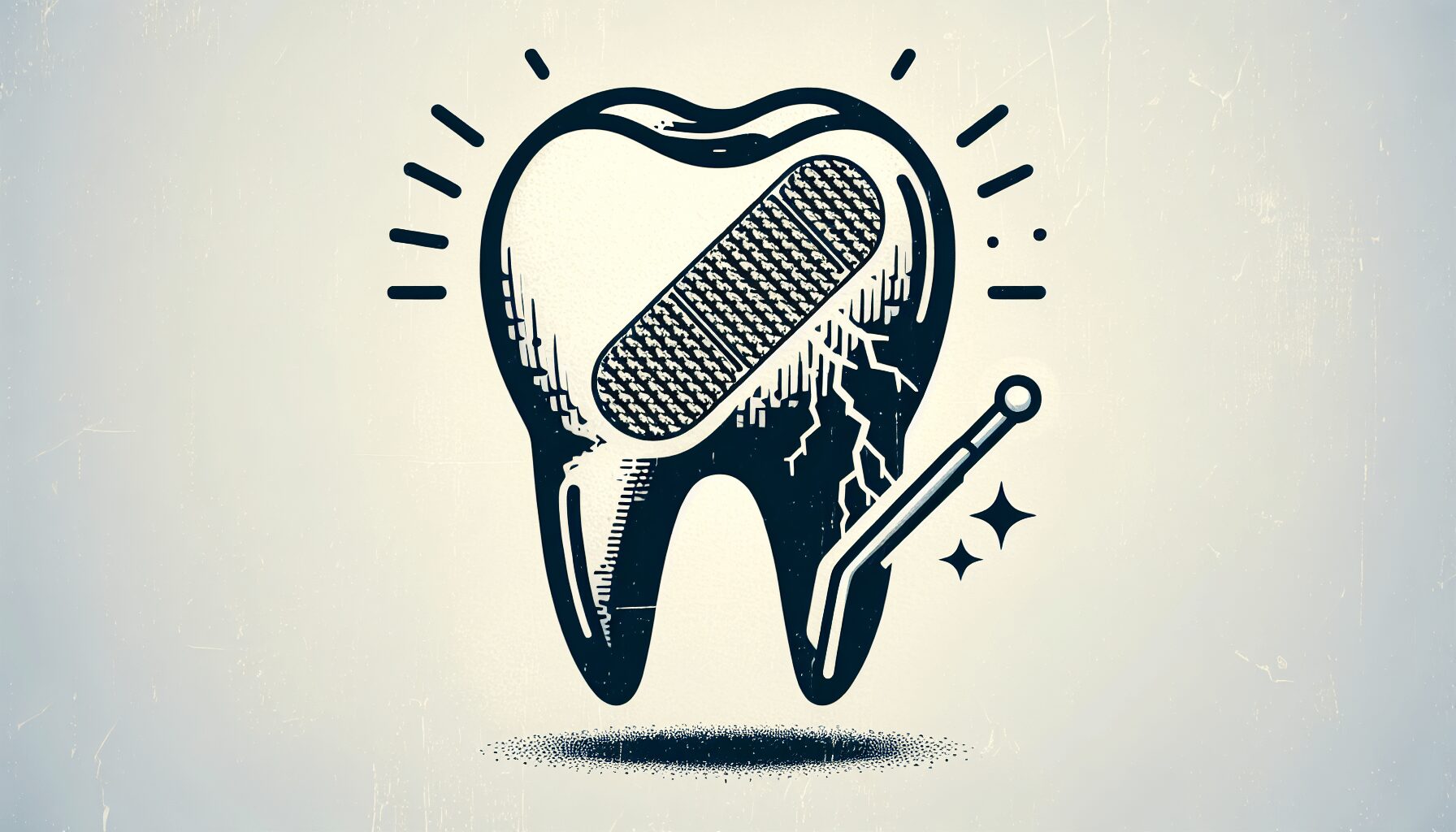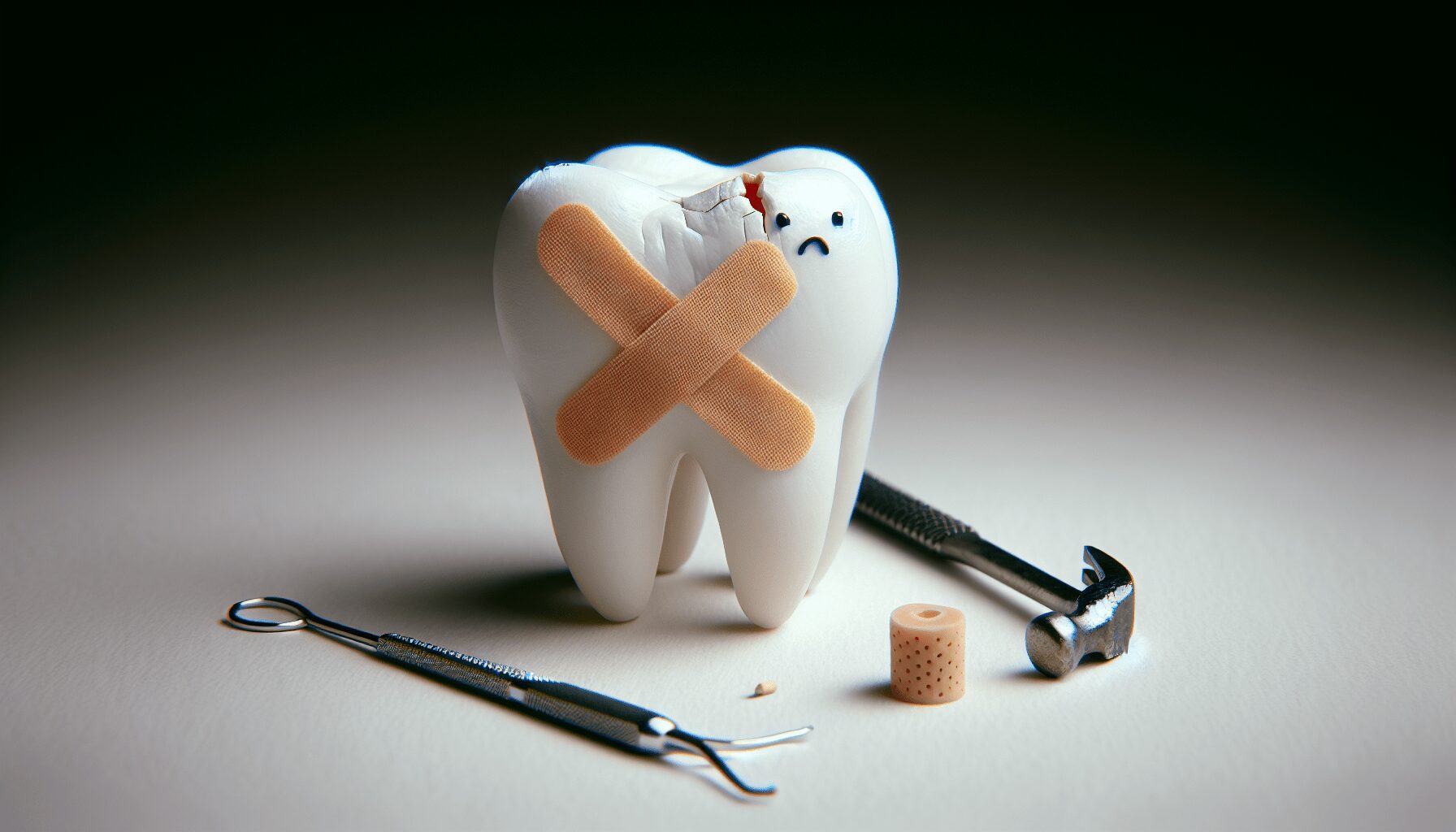What Can I Do If I Have A Bad Tooth With No Money?
Do you ever find yourself in a predicament where you’re dealing with a bad tooth but don’t have the funds to address it? If so, you’re not alone, and there are ways to manage this situation while taking care of your health. This article will explore practical options and tips on how to tackle dental issues on a tight budget, because we know how a tooth can disrupt your comfort and confidence.
Understanding the Importance of Dental Health
Your dental health is key to your overall well-being. Teeth aren’t just important for a charming smile; they play a vital role in digestion, speech, and maintaining facial structure. Ignoring a bad tooth can lead to severe health problems. Yet, the high cost of dental care often makes it seem impossible to get help without insurance or a thick wallet.
Why a Bad Tooth Needs Prompt Attention
A bad tooth can cause tremendous pain, infection, and might even affect other teeth if not treated in time. It’s easy to delay treatment when money is tight, but with some creativity and resourcefulness, there are solutions to explore.
Affordable Dental Care Solutions
When faced with a dental issue and limited financial resources, exploring affordable dental care solutions is crucial. From community health programs to dental schools, there are surprisingly many avenues to explore.
Community Dental Clinics
Many communities offer dental clinics that provide services based on a sliding scale fee, which adjusts according to your income. These clinics are funded by the government or non-profit organizations, aiming to offer low-cost or free services to those in need. It’s worth checking if there’s one in your area.
Dental Schools for Low-Cost Treatments
Dental schools operate on the principle of providing students with practical experience. Under the supervision of experienced professionals, these students offer treatments at much lower costs. While the process may take longer, the care provided is thorough and can be an excellent resource for affordable treatment.
Non-Profit Organizations
Certain non-profit organizations focus on providing dental care to those who can’t afford it. They may run dental missions or set up clinics in underserved areas. Researching these organizations online or through local community boards can lead you to opportunities for free or low-cost care.
Exploring Payment Plans and Insurance Options
For many, the cost of dental care can be a major hurdle. Investigating various payment plans and understanding insurance options might reveal manageable ways to cope with the expenses.
In-House Payment Plans
Some dental practices offer in-house financing plans. These plans break down the cost of procedures into more manageable monthly payments. Before committing, ask for specifics regarding interest rates or application fees to ensure it’s a reasonable option.
Dental Savings Plans
Dental savings plans are membership-based programs offering discounts on various dental procedures. Unlike insurance, there are no deductibles or annual caps. This might be a viable alternative if traditional insurance is out of reach. Research and compare options to find one that suits your needs.
State and Community Programs
State programs often provide assistance for dental care through Medicaid or other health services. While these can be restrictive, especially for adults, they might cover necessary procedures like extractions or fillings. Contact your state’s health department for specific information.
Home Remedies to Manage Pain
If immediate professional treatment isn’t possible, certain home remedies might offer temporary relief. These are not substitutes for professional dental care, but they can help manage pain and swelling until proper treatment is accessible.
Saltwater Rinse
A saltwater rinse is one of the simplest ways to reduce inflammation and clean the infected area. Mix half a teaspoon of salt in a cup of warm water, swish it in your mouth for about 30 seconds, then spit it out.
Cold Compress
Applying a cold compress can help reduce swelling and numb the area to relieve pain. Use a cloth wrapped around ice and apply it to your cheek for about 15 to 20 minutes.
Over-the-Counter Solutions
Over-the-counter pain relievers like ibuprofen can effectively reduce pain and inflammation. An oral gel might also help numb gum pain. Always follow dosage guidelines and consult a healthcare professional if possible.
Preventing Further Dental Issues
Prevention is often more manageable than treatment, especially on a budget. By developing a consistent dental hygiene routine, you can protect yourself from further issues.
Basic Oral Hygiene Practices
Brushing twice daily, flossing, and using mouthwash can significantly protect against cavities and gum disease. Ensure you use fluoride toothpaste and replace your toothbrush every three to four months.
Diet and Lifestyle Changes
Your diet plays a critical role in dental health. Reducing sugar intake and avoiding tobacco can prevent tooth decay and other oral issues. Incorporating foods rich in calcium and vitamin D can strengthen your teeth and gums.
Regular Self-Checkups
Regularly check your mouth for signs of decay or gum issues. Early detection and lifestyle changes can stop a problem from worsening, saving you pain and expenses down the line.
Communication with Your Dentist
It might feel awkward, but talking to your dentist about financial struggles can open up options. Dentists often understand such predicacies and can offer lower-cost treatment plans or suggest financing options.
Building a Trusting Relationship
A good relationship with your dentist means you can openly discuss problems, including financial ones. Many practitioners appreciate this transparency and might even offer solutions you hadn’t considered.
Seeking Second Opinions
If the proposed treatment seems costly, don’t hesitate to seek a second opinion. Different dentists may suggest varying treatment plans or provide insights that could lead to more economical solutions.
Professional Help When Experiencing a Dental Crisis
Sometimes situations escalate to the point of emergency intervention. When this happens, knowing your options can help you get swift care without worrying excessively about costs.
Emergency Dental Services
Emergency rooms can stabilize severe pain or swelling, though they may not provide comprehensive treatment. Some hospitals may offer arrangements for post-emergency dental care or direct you to low-cost services.
Charitable Dental Services
Certain charities focus on providing emergency dental services. These may not be widely available, but it’s worth researching charity events or responses in crisis situations.
Building a Long-Term Plan for Dental Health
Emergencies aside, planning for future dental health with long-term strategies ensures fewer complications and expenses down the line.
Establishing an Emergency Fund
Consider setting aside small amounts periodically to build an emergency fund dedicated to health needs, including dental care. It doesn’t need to be large; even a modest fund can ease future stresses.
Regular Checkups
Though not always feasible, regular dental checkups can detect problems early. To minimize costs, look out for community dental events offering free or discounted checkups.
Sweet Water Dentistry: Your Resource for Quality Dental Care
If you reside in Fairhope, AL, Sweet Water Dentistry emerges as a viable option for professional dental services. They work with insurance claims, but emphasize the importance of payment at the service time. Their wide range of trusted dental services reflects their commitment to patient care.
About Sweet Water Dentistry
Sweet Water Dentistry, led by Dr. Phillip N. Greer, extends comprehensive dental care ranging from checkups to more complex treatments. With a focus on creating a welcoming and relaxed environment, they aim to build lasting relationships with their patients.
Professional and Community-Oriented Care
Their mission to serve the community with love and care aligns with their dedication to fostering trust and comfort in dental environments. Patients new to Sweet Water Dentistry are warmly encouraged to make it their dental home.
Why Choose Sweet Water Dentistry
Whether you need routine care or face an emergency, Sweet Water Dentistry’s commitment to patient welfare may offer the care you seek. Look into their options, and consider contacting them to discuss potential services or financial arrangements.
In these challenging times, having a bad tooth with no means can be incredibly stressful. Thankfully, there are strategies to manage dental health even with financial constraints. By considering different care options and implementing preventive measures, you can maintain a healthier smile without straining your pocket.
Visit us for expert care:
Sweet Water Dentistry
📍 5915 Sweetwater Cir, Fairhope, AL 36532
🌐 sweetwatersmile.com
📞 Call or Text: (251) 210-2773
Follow us on Facebook and Instagram for the latest updates and special offers!





